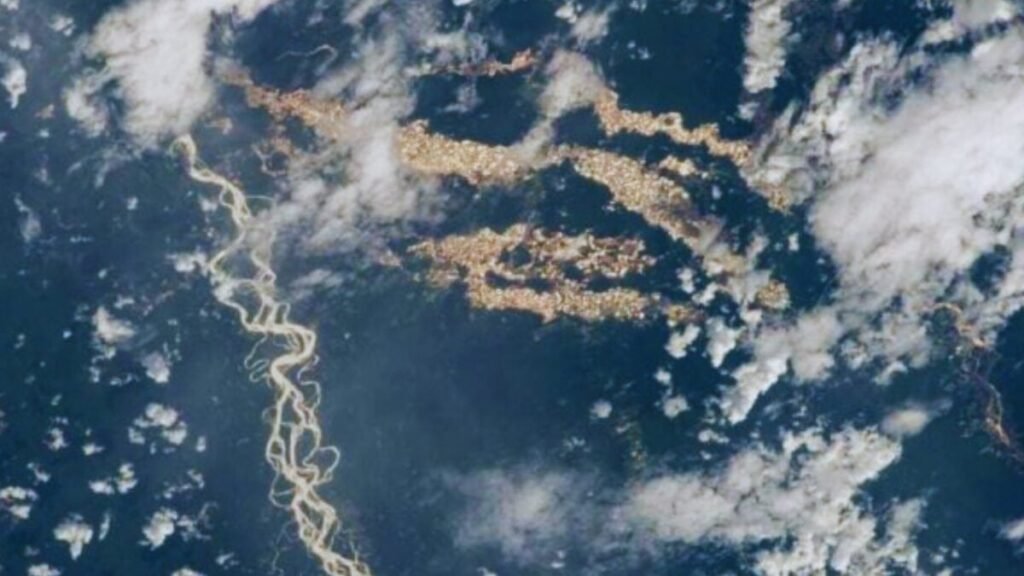A Golden Christmas in the Peruvian Amazon: NASA’s Dazzling Discovery and Jungle’s Lethal Secret

The Golden Glow of Destruction
On December 24, 2020, a satellite captured one of the most mesmerizing images of the last decade. From about 400 kilometers above, the southern part of Peru shone as if a river of gold was flowing through the jungle. However, what appeared to be a natural phenomenon was, in reality, an open wound: hundreds of gold mining pits spreading across the Amazon.
The photograph was slightly edited to enhance contrast, but the golden glow is no trick. The sunlight hits the pools and lagoons created by mining, generating a metallic reflection visible even from Earth’s orbit. The winding channels to the left of the image correspond to the Inambari River and the Tambopata National Reserve, two legally protected areas constantly threatened by gold extraction.
The Shine of Gold, the Shadow of Mercury
The “rivers of gold” shining in the Peruvian jungle may be beautiful, but a significant portion of their production comes from illegal mining, operating without any environmental control. In these operations, miners use mercury to separate the precious metal from the soil and sediments. It is a rudimentary, fast… and toxic process. Mercury accumulates in ponds and ends up seeping into rivers, where microorganisms transform it into methylmercury, a neurotoxin capable of affecting the nervous system of humans and animals.
A Dangerous Beauty
From space, the landscape appears as a work of art. On the ground, it is a reminder of the price of gold. Deforestation, loss of biodiversity, and water pollution have completely altered once pristine areas of southeastern Peru. This duality – the beauty born out of harm – makes this photograph one of the most powerful in recent years: a shiny mirror reflecting both our ability to admire nature and our ability to destroy it.






